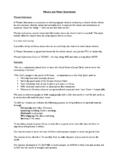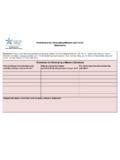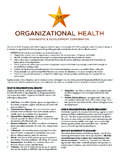Transcription of Annual Report 2008 - OECD.org
1 Annual Report 2008 OECDTHE ORGANISATION FOR ECONOMIC CO-OPERATION AND development (OECD) Annual Report is prepared by the Public Affairs Division, Public Affairs and Communications Directorate. It is published under the responsibility of the Secretary-General of the en fran ais sous le titreRapport annuel de l OCDE : 2008 OECD 2008No reproduction, copy, transmission or translation of this publication may be made without written permission. Applications should be sent to OECD Publishing: or by fax (+33-1) 45 24 13 91. Permission to photocopy a portion of this work should be addressed to the Centre fran ais d exploitation du droit de copie, 20 rue des Grands-Augustins, 75006 Paris, France pictures are OECD except:page 12 REUTERS/Tobias Schwarzpage 12 REUTERS/POOL Newpage 12 REUTERS/Christian Charisiuspage 14 REUTERS/Mark Averypage 22 REUTERS/Vijay Mathurpage 26 REUTERS/Michael Koorenpage 30 REUTERS/Yves Hermanpage 35 REUTERS/Fabrizio Benschpage 40 REUTERS/Srdjan Zivulovicpage 48 REUTERS/Shaun Bestpage 57 REUTERS/Albert Geapage 62 REUTERS/Paul McErlaneFor pictures in high resolution, e-mail: book titles in italics are available for sale via the OECD online bookshop.
2 Report 2008 OECDOVERVIEW Foreword 5 The OECD at a glance 9 The OECD: what is it?Budget and fi nanceSelected events Annual Spotlights 14 Subprime mortgage and structured products crisisThe economics of climate changeKEY ACTIVITIES Economic growth, stability and innovationEconomic growth 21 Emerging giants: India follows ChinaScience, technology and innovation 25 The evolving nature of innovationIndustry and entrepreneurship 30 Staying competitive in the global economy Employment, social cohesion and environmentEmployment and social cohesion 34 Globalisation, jobs and wagesEducation 39 Improving school leadershipEnvironment 43 Policy solutions for the future of the environmentHealth 47 Monitoring healthcare quality indicators International trade and taxationTrade.
3 Agriculture and fi sheries 50 Globalisation of fi sheriesAgricultural prices and biofuelsTaxation 56 Consumption taxes GovernancePublic governance 60 Review of the Irish public servicePrivate sector governance 64 Sovereign wealth funds development and global relationsDevelopment co-operation 68 The fi rst Latin American Economic OutlookGlobal relations 72 OECD and India StatisticsStatistics 76 CommunicationsPublic affairs and communications and TUAC Africa Partnership Forum 85 International Energy Agency 86 The international fi ght against money laundering and terrorist fi nancing 88 The Heiligendamm Dialogue Process Support Unit 89 Nuclear Energy Agency 90 International Transport Forum 92 ABOUT THE OECD Civic activities 96 Gender and diversity Executive directorate 98 Who does what 100 Ministerial Council Meeting 2007 105 PRACTICAL INFORMATION The OECD secretariat 109 Organisation chart 110 Ambassadors, Permanent representatives to the OECD 112 OECD member countries 1155 OVERVIEWF orewordOECD Annual Report 2008 OECD 2008 Foreword A new OECD for new global challenges The past year has been extremely challenging for the world economy.
4 Open markets for trade and investment are being threatened by rising protectionist pressures. The world economy has been stumbling under the weight of fi nancial turbulence and a resulting slowdown. The price of food, oil and metals is at an all time high. The dangers of climate change have climbed to the top of the political this Annual Report sets out, the OECD has been at the very heart of efforts to help countries generate innovative solutions by taking the lead on analysing, diagnosing and developing policy options for the benefi t of its members and for the world at stumbling world economy The United States is witnessing a severe economic downturn. The European Union is struggling to cope under the resulting impact and the burden of a strong euro.
5 We are experiencing a global crisis of confi dence. Oil, gold, metals and food prices are hitting record levels because, among other reasons, they are now being used as stores of value instead of the usual fi nancial , emerging economies are still growing strongly. However, this expansion cannot last long if things continue deteriorating in the OECD economies. In a global economy there are no decouplings . Developing countries will also suffer if we do not fi nd solutions fast, because they still get most of their export earnings, foreign investment, loans and remittances from North America, Europe and sub-prime crisis has revealed the vulnerability of the current fi nancial system. Innovation in fi nance, such as the securitisation of almost any form of debt into a tradable asset, might have helped spread risk, but it also introduced new weaknesses.
6 National and international institutions, including the OECD, need to react quickly and effectively in order to anticipate crises and improve the communications regarding the issues at harnessed, innovation will be key to helping us overcome current diffi culties. The new mandate from ministers to develop an Innovation Strategy recognises its position at the very core of all OECD activity. Our challenge will be to deliver a set of policy tools and recommendations to understand the potential of innovation and boost it. This will include the means to identify and benchmark innovation capacity and performance. The Strategy will also address the relationship between innovation and entrepreneurship, economic growth, social progress and global issues such as health and climate Secretary-General, Angel Gurr Report 2008 OECDOECD Annual Report 2008 OECD 2008 Climate change the fi erce urgency of now Climate is a major planetary challenge.
7 It is testing our capacity for co-operation and our creativity as policy makers. The OECD Environmental Outlook to 2030 shows that the ambitious and comprehensive policies necessary to tackle climate change are achievable, available and affordable. It explains that to put us on the path to stabilising greenhouse gases at an acceptable level in the atmosphere would reduce global growth by about one-tenth of 1% per year (on average) from now to 2050. This is not cheap, but it is an affordable cost, given our expectations for growth and living standards in the coming years and given that the cost of inaction would be far have a range of fi nancial and economic instruments at hand to limit emissions. But the right solutions require that every country participate, together with strong political will from both developed and developing countries, and the best technical expertise.
8 The OECD has been working on the economics of climate change for several decades. We stand ready to continue our support to policy makers in identifying, developing and implementing effective and least-cost policies to tackle climate change. The OECD s Ministerial Council Meeting, to be held in June, will address climate change head-on, gathering ministers from the major emerging economies at the same table with their OECD counterparts. Only through such dialogue can we move the global agenda on climate change forward, towards an economically, environmentally and socially sustainable markets under threat As OECD work has clearly demonstrated, the Doha development Agenda provides a welcome opportunity for more open trade to contribute to the growth of the world economy, and in particular to improve the economic prospects of developing countries.
9 But despite repeated deadlines, WTO members have yet to reach an agreement. Of all the global challenges facing the international community, agreeing on further trade liberalisation should be the least diffi cult one to solve. The rising tide of protectionist sentiment only heightens the urgency to do concerns in some OECD countries about security issues have been used as an excuse for the emergence of unjustifi ed protectionist measures against some foreign investment transactions. This is a dangerous, threatening trend, which could set us back in our efforts of many decades to build an open international investment regime. The OECD has been working on a Freedom of Investment Initiative to defi ne disciplines and principles that will allow host countries to protect legitimate national security interests, while minimising restrictions on international investment fl most recent manifestation of protectionist sentiment has arisen in connection with sovereign wealth funds (SWFs), whose size and ownership have raised important questions.
10 Some potential recipients fear SWF investment decisions could be motivated more by political objectives OECD Secretary-General, Angel Gurr a, speaking at the plenary session of the UN Conference on Climate Change held in December 2007 in Bali, Annual Report 2008 OECD 2008than profi t considerations, with security-sensitive and other strategic assets among those targeted for investment. Again, the OECD has led the way in responding pragmatically and rationally to a complex issue. Last year, at a meeting involving G7 fi nance ministers and authorities from the SWF countries, the OECD was tasked with developing voluntary guidelines and best practices for recipient countries policies towards investments by these funds.















